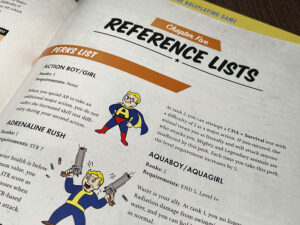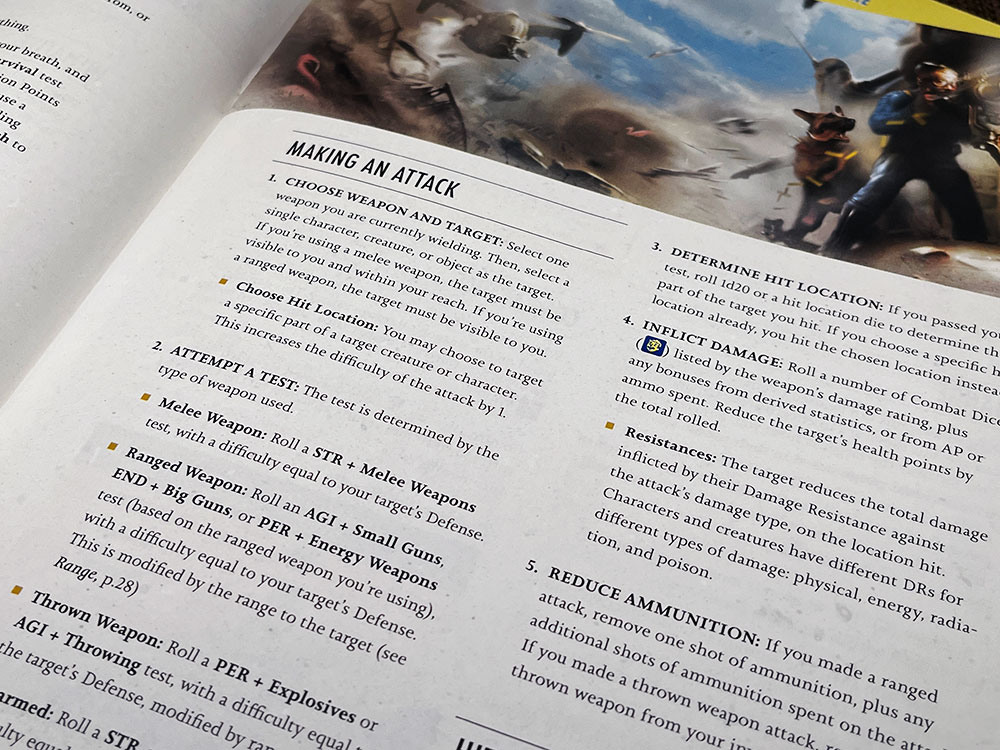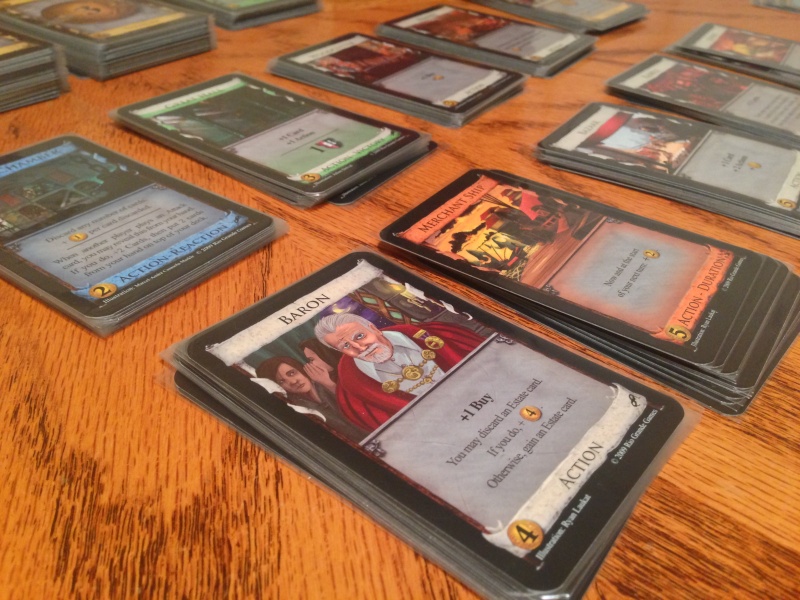 Ask any gamer on the street which Bethesda RPG is the best: Fallout or The Elder Scrolls and you are almost never going to get a consensus. While some people love the fantasy and magic of games like Skyrim and Oblivion, others are drawn to the post-apocalyptic wasteland that encompasses the Fallout series. Personally, I fall into that latter category. Fallout not only features some iconic locations in an alternate reality (with a cool retro future vibe) but also has an engaging storyline with its unique series of Vaults.
Ask any gamer on the street which Bethesda RPG is the best: Fallout or The Elder Scrolls and you are almost never going to get a consensus. While some people love the fantasy and magic of games like Skyrim and Oblivion, others are drawn to the post-apocalyptic wasteland that encompasses the Fallout series. Personally, I fall into that latter category. Fallout not only features some iconic locations in an alternate reality (with a cool retro future vibe) but also has an engaging storyline with its unique series of Vaults.
For those that want to experience this setting on their tabletop, there are already a couple of options. There is the exploration-based board game from Fantasy Flight Games, and also the straight-up combat game in the form of Fallout: Wasteland Warfare. But today, we are going to hop over to the RPG side and take a look at the Fallout: Roleplaying Game Starter Set from Modiphius Games.
Gameplay Overview:
The Fallout RPG uses Modiphius’ 2d20 system. It’s their own in-house system that will have players rolling 2 20-sided dice (as a base) for most tests. While definitely different than the popular D20 system (Dungeons and Dragons), players who are coming from something like that should have an easy time making this transition.
The starter set comes with a softcover rulebook and campaign book, 6 pre-gen characters, a set of dice, and a pile of bottle cap tokens to be used as general counters. The rulebook is a much paired down 53 pages (with the hardcover full rulebook clocking in at 400+ pages). The included rulebook though gives a great overview of how to play the game and omits non-essential rules (for this campaign at least) like character creation or world building.

The first chapter of the rulebook basically launches into how to run an RPG if you’ve never done so before. There are a lot of nice tips here for new players, but RPG veterans can probably breeze past this section. The main focus of the rulebook is the chapters on mechanics. Specifically, skills, tests, and action points.
Every player character (PC) has 7 abilities skills modeled off Fallout’s S.P.E.C.I.A.L. system. Those will form the base number for any test. Added to those is any relevant skill. For example, say the players are trying to scavenge some supplies from a rusted-out car they came across. First, the GM sets the difficulty on a scale of 1-5, that’s how many successes they need to succeed. The player’s relevant attribute will be their Perception attribute and their Survival Skill. Adding those numbers together gives you the target number the players has to roll equal to or less than to succeed at the test. Any roll of 1 is a critical success, which provides 2 successes, while any roll of a 20 creates a complication.
Using the example above, pre-gen vault dweller Augusta Bryon has a Perception of 6, and 1 rank in Survival. So, they need to roll a 7 or less to succeed in finding something useful in the car. Rolling a complication doesn’t invalidate a test, but it does throw a wrench into the works. Perhaps searching the car finds them a stimpak, but they also set off the car alarm, alerting nearby rad roaches to their presence.

Bonus successes in any test can generate Action Points for the group. These can be spent in future tests to improve the outcome, learn more about a situation, or even buy more dice to roll in a test.
The rulebook also has a dedicated section on Combat, which works pretty similar to tests. But there are a lot more modifiers, such as range, cover, and damage reduction. The Starter Set assumes you’ll be playing via “Theater of the Mind”, so no standees or maps are provided. I’m not sure if the Fallout System works with hex and grid players, but there is nothing here to assume that it does.
Finally, the rulebook closes out with some info on perks, items, and other miscellaneous.

Game Experience:
In addition to the rulebook, the other main focus of this box set is the campaign adventure. Coming in at 60 pages, the adventure is smartly divided up into a series of acts. I’m going to avoid giving away any spoilers here for players that might hope to play it someday, but I can tell you that it does a good job of dropping players right into the world of Fallout. Not only are many of the enemies from the video game front and center here, but the action starts out at one of the iconic Fallout Vaults.

One thing that I thought was excellent was that the campaign is written with new players in mind. While the GM will need to have read the rulebook ahead of time, and probably explained some basics to the players, the adventure is crafted in such a way that it explains the rules to the players as the game progresses. That means that you don’t have to overload new players with information they don’t quite need yet. For the setting, while you don’t have to have familiarity with the Fallout game system to play, it will definitely enhance your enjoyment. With races and locations from the video games (who wants to play a Mr. Handy), having played the Fallout series will definitely make this tabletop game a lot more fun.
The Fallout system also uses Milestone level vs doling out specific experience points. That means that characters will level up at specific benchmarks in the game. For the starter set, it will be at the end of each of the 3 chapters. I’ve long been a fan of the milestone leveling system, as it helps keep things even and overall makes life easier for the GM. Not needing to calculate XP at the end of each session and making sure players are on track for your adventure is a great time-saving tool.

The pre-generated characters are also a diverse enough group to give players their own unique feel. As mentioned above, a vault dweller is already included, as are a mutant, wasteland survivor, ghoul, and even a Mr. Handy Robot. Each character is fully stated and decked out with equipment, so players can jump in on the action right away. They even have their own bio on their history to help give players motivation on how the character might act.
At the end of the adventure, it does give some options for further adventuring in the wasteland. However, players will need to pick up some of the more dedicated RPG books for this game should they want to go all in and keep playing. That being said, this starter set definitely gives a good feel for both the game and the system so players can make an educated decision on if they want to dive more into the world.
Final Thoughts:
I honestly don’t have very much to complain about with the Fallout Starter Set. It does exactly what it should: eases players into the system, immerses them into the Fallout universe, and even provides a springboard for further adventures should they want to keep playing. There are tons of RPGs to choose from and learning a new system is never easy. However, this starter set is the perfect opportunity for players interested in adventuring in the wasteland to get their feet wet.






















